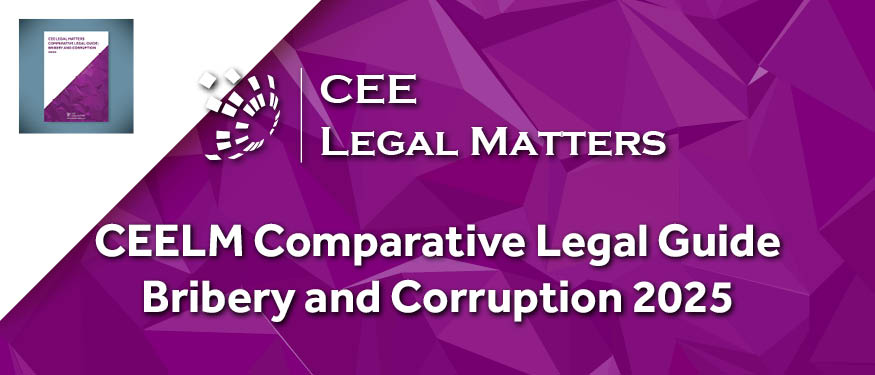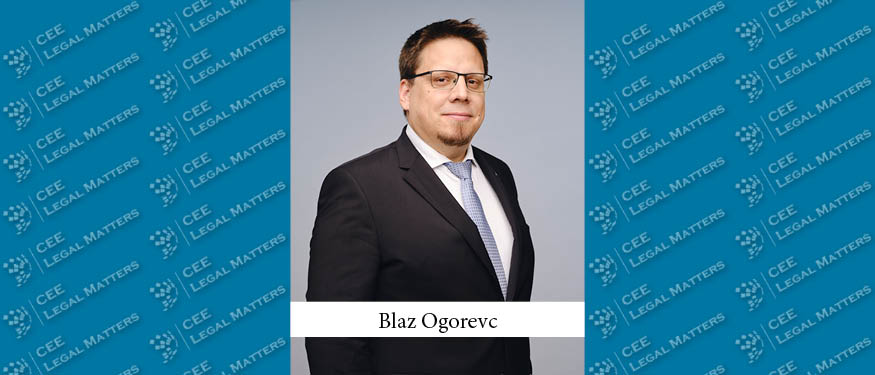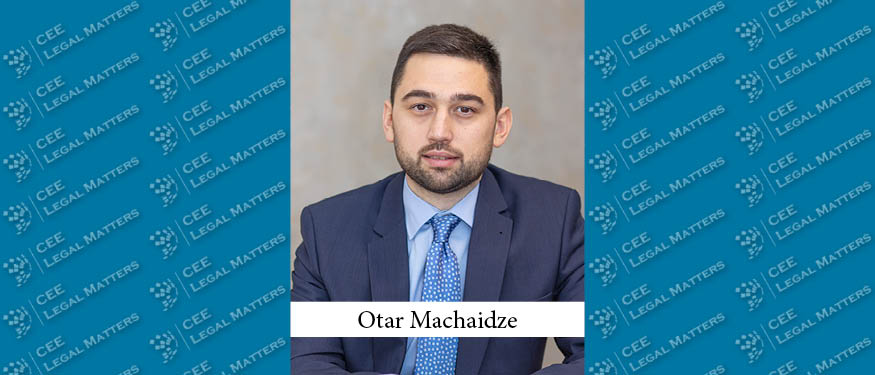The European Accessibility Act (EAA), approved in 2019, takes effect on June 28, 2025. The Act requires a wide range of products and services – such as consumer electronics, vending machines, websites, and mobile apps – to meet accessibility standards for people with disabilities.
Hot Practice in Slovenia: Minu Anamaria Gvardjancic on Ketler & Partners' Dispute Resolution Practice
Consumer-focused litigation, especially relating to Swiss loan credit contracts, has driven significant growth in dispute resolution practices in Slovenia since 2022, according to Ketler & Partners, member of Karanovic Partner Minu Anamaria Gvardjancic. With the courts adopting a very proactive stance and wide interpretation of the impact of EU case law increasingly asserting consumers’ rights, disputes are expected to continue expanding in the coming months.
CEE Legal Matters Comparative Legal Guide: Bribery & Corruption 2025 is Now Out!
CEE Legal Matters is proud to introduce the latest in our Comparative Guides series. This one focuses on Bribery & Corruption in CEE.
Bribery and Corruption in Slovenia
Contributed by Selih & Partnerji.
CEE Legal Matters Comparative Legal Guide: Litigation 2025 is Now Out!
CEE Legal Matters is proud to introduce the latest in our Comparative Guides series. This one focuses on Litigation in CEE.
Litigation in Slovenia
Contributed by Senica.
CMS and Schoenherr Advise on Synlab International's Sale of Eastern European Business Activities to Medicover Group
CMS has advised Synlab International on the sale of its business activities in Eastern Europe – including its entities in Croatia, North Macedonia, Romania, Slovenia, Turkiye, and Cyprus – to Medicover Group. Schoenherr advised Medicover.
Slovenia's in Search of Upgrades: A Buzz Interview with Tine Misic of ODI Law
Prioritizing defense, tax reforms, and anticipated tariffs are at the top of the agenda in Slovenia, according to ODI Law Partner Tine Misic, who reports the country is looking to upgrade its railway infrastructure and nuclear power plant in Krsko.
2025 CEELM Deal of the Year Awards Banquet: And the Winner Is…
On the evening of April 1, 2025, the Deal of the Year Awards Banquet brought together, under the same roof, over 200 top-tier lawyers from Central and Eastern Europe's leading law firms and General Counsel from across the region in Prague.
Selih & Partnerji and Lukman Advise on Plastiflex Group's Acquisition of TIK
Selih & Partnerji has advised Plastiflex Group on the acquisition of TIK from Batagel & Co. Lukman advised the sellers.
Slovenia: Financing Snapshot
Slovenia’s financing landscape over the past couple of years has been characterized by the expansion and consolidation efforts of Hungary’s OTP banking group, resulting in the market being headed by two comparably large institutional players: NLB and OTP. In fact, consolidation in the banking sector could have easily been the talk of the year had it not been for the increased financing costs fueled by relatively high interest rates combined with volatile energy prices that have been causing headaches for the economy on all levels.
Rojs, Peljhan, Prelesnik & Partners and Fatur Menard Advise on Skupina Unior's Sale of Unitur Hotels & Resorts
Rojs, Peljhan, Prelesnik & Partners has advised Unior Group on the sale of Unitur Hotels & Resorts to Advance Capital Partners. Fatur Menard advised Advance Capital Partners.
Ketler & Partners Advises Hocevar on Sale of Lambergh Chateau & Hotel
Ketler & Partners, a member of Karanovic, has advised Hocevar on the sale of the Lambergh Chateau & Hotel in Radovljica, Slovenia, to Orthos Nepremicnine.
Slovenia: A Renewed Legislative Focus on Strengthening the Public Use of Slovene
The Slovene language has long been a core part of Slovenia’s national identity, instrumental in unifying the nation during its journey to independence in 1991. However, globalization and digitalization have increasingly challenged the prominence of Slovene in public and commercial domains. This pressure has placed responsibility on the Slovenian government to safeguard the language’s role in the face of a rapidly globalizing world. Recent amendments to the Act on the Public Use of Slovene (Act) reflect this commitment to preserving and expanding Slovene’s presence in public, commercial, and digital spheres.
CEE Legal Matters Comparative Legal Guide: Real Estate 2025 is Now Out!
CEE Legal Matters is proud to introduce the latest in our Comparative Guides series. This one focuses on Real Estate in CEE.
Real Estate Laws and Regulations in Slovenia (2025)
Contributed by Jadek & Pensa.
Slovenia: Contractual Penalties in Employment Law
Recent rulings of the Slovenian Supreme Court on the permissibility of including contractual penalties in employment contracts highlight that when assessing the permissibility of applying the concept of a contractual penalty, one must consider the subordinate and dependent position of the employee relative to the employer both when concluding the employment contract and during the employment relationship.
Polona Fink Promoted to Partner at Rojs, Peljhan, Prelesnik & Partners
Rojs, Peljhan, Prelesnik & Partners has promoted Polona Fink to Partner.

































